Homemade glass cleaner: Tired of streaks and smudges ruining your view? I know I am! Store-bought glass cleaners can be expensive and often filled with harsh chemicals that I’d rather not have lingering in my home. But what if I told you that sparkling, streak-free windows are just a few common household ingredients away? This DIY guide will unlock the secrets to creating your own effective and eco-friendly glass cleaner, saving you money and protecting your family’s health.
The tradition of cleaning windows dates back centuries, with early methods relying on simple mixtures of water and vinegar. While commercial cleaners have evolved, the basic principles remain the same: dissolve dirt and grime, then wipe away for a crystal-clear finish. This DIY approach allows us to tap into that time-tested wisdom while customizing the ingredients to our preferences.
Why should you ditch the store-bought stuff and embrace homemade glass cleaner? Because it’s not just about saving money; it’s about control. You get to choose exactly what goes into your cleaner, avoiding potentially harmful chemicals and creating a solution that’s gentle on your surfaces and the environment. Plus, it’s incredibly satisfying to create something effective and useful with your own two hands. Let’s get started and transform your windows from dull to dazzling!
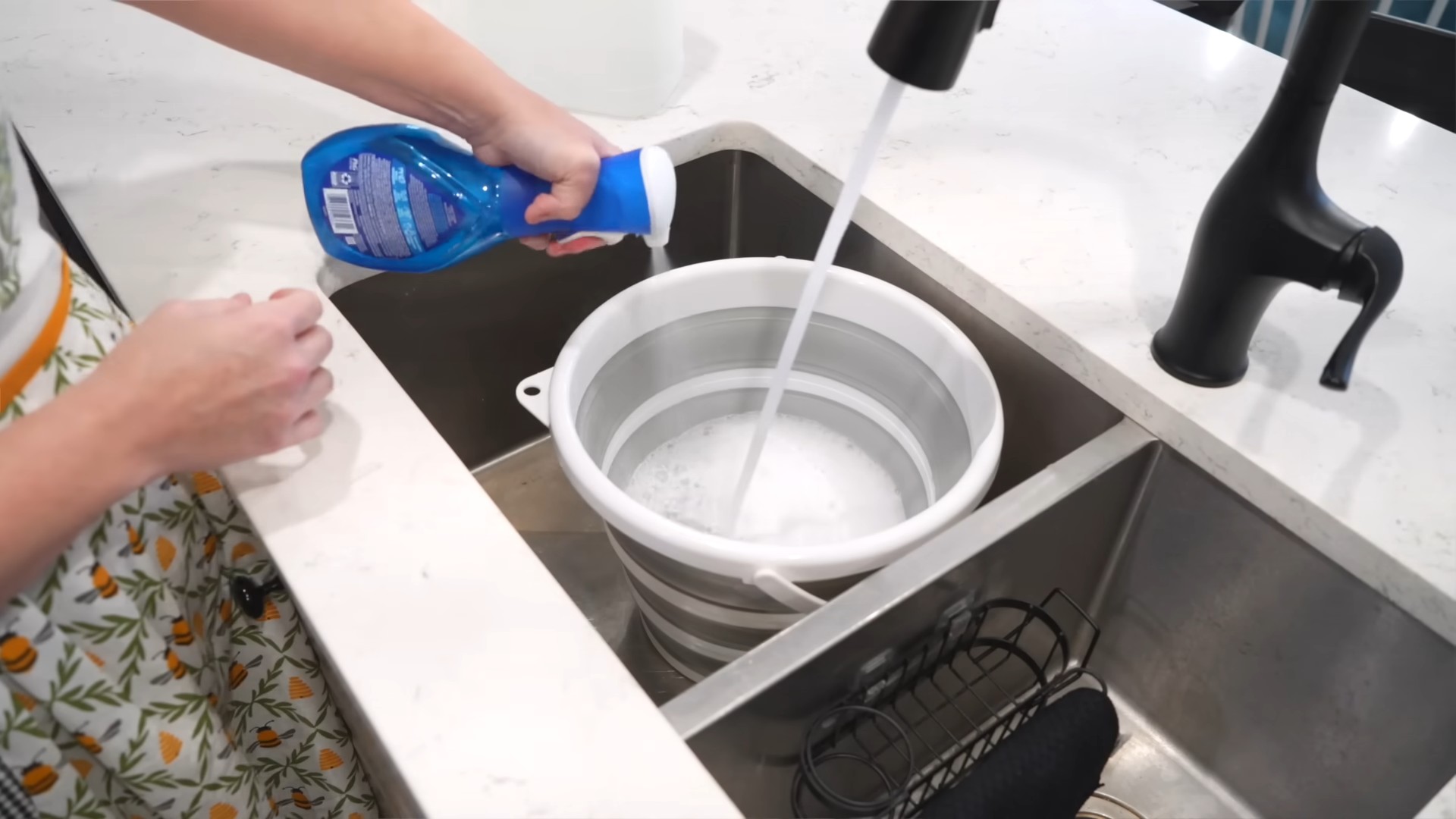
DIY Streak-Free Glass Cleaner: Save Money and the Planet!
Hey everyone! I’m so excited to share my go-to recipe for a sparkling clean, streak-free glass cleaner. Not only is it incredibly effective, but it’s also super cheap and eco-friendly. Forget those expensive store-bought cleaners filled with harsh chemicals – this homemade version is all you need to get your windows, mirrors, and glass surfaces looking their absolute best. Plus, you probably already have most of the ingredients in your pantry!
What You’ll Need
Before we dive in, let’s gather our supplies. This is a pretty simple recipe, so the list is short and sweet:
* Spray Bottle: A clean, empty spray bottle is essential. I prefer using a recycled one to be even more environmentally conscious. Make sure it’s thoroughly cleaned before using it for your glass cleaner.
* Distilled Water: This is key to avoiding streaks! Tap water often contains minerals that can leave residue on your glass.
* White Vinegar: The star of the show! Vinegar is a natural cleaner and disinfectant, and it’s amazing at cutting through grime and grease.
* Rubbing Alcohol (Isopropyl Alcohol): This helps the cleaner evaporate quickly, preventing streaks.
* Optional: Essential Oil: A few drops of your favorite essential oil can add a pleasant scent and help mask the vinegar smell. Lemon, lavender, and tea tree oil are all great choices.
* Measuring Cups and Spoons: For accurate measurements.
The Recipe: My Secret Formula
Okay, here’s the recipe I’ve perfected over the years. It’s super easy to adjust to your liking, but this is a great starting point:
* 2 cups distilled water
* 1/2 cup white vinegar
* 1/4 cup rubbing alcohol (70% or higher)
* 5-10 drops essential oil (optional)
Step-by-Step Instructions: Let’s Get Cleaning!
Now for the fun part! Follow these simple steps to create your own amazing glass cleaner:
1. Prepare Your Spray Bottle: Make sure your spray bottle is clean and dry. Any residue inside could contaminate your cleaner.
2. Add Distilled Water: Pour 2 cups of distilled water into your spray bottle. Using distilled water is really important for streak-free results. Trust me, I’ve learned this the hard way!
3. Pour in the White Vinegar: Next, add 1/2 cup of white vinegar to the spray bottle. Don’t worry about the smell – it will dissipate quickly. Vinegar is a powerhouse when it comes to cleaning!
4. Add the Rubbing Alcohol: Now, pour in 1/4 cup of rubbing alcohol. This helps the cleaner dry faster and prevents those annoying streaks.
5. Add Essential Oil (Optional): If you’re using essential oil, add 5-10 drops to the mixture. I love using lemon essential oil for its fresh, clean scent. But feel free to experiment and find your favorite!
6. Close and Shake: Secure the spray nozzle tightly and shake the bottle gently to combine all the ingredients.
7. Label Your Bottle: This is important! Label your spray bottle clearly as “Glass Cleaner” to avoid any confusion. You don’t want anyone accidentally using it for something else!
How to Use Your Homemade Glass Cleaner: Tips and Tricks
Now that you’ve made your glass cleaner, let’s talk about how to use it effectively:
1. Spray Sparingly: A little goes a long way! Don’t oversaturate the surface you’re cleaning. Just a light mist is all you need.
2. Use a Microfiber Cloth: This is crucial for streak-free results. Microfiber cloths are super absorbent and won’t leave lint behind. I have a whole stash of them just for cleaning glass.
3. Wipe in a Circular Motion: Start by wiping the surface in a circular motion to loosen any dirt and grime.
4. Buff Dry: Then, use a clean, dry section of the microfiber cloth to buff the surface dry. This will remove any remaining cleaner and leave a sparkling finish.
5. Tackle Stubborn Spots: For stubborn spots or streaks, spray a little more cleaner directly onto the cloth and rub the area gently.
6. Clean Windows on a Cloudy Day: This might sound strange, but cleaning windows on a sunny day can actually cause the cleaner to dry too quickly, leading to streaks. Cloudy days are ideal!
Where to Use Your Homemade Glass Cleaner: Versatility is Key!
The best part about this glass cleaner is that it’s incredibly versatile. You can use it on a variety of surfaces, including:
* Windows: Inside and out!
* Mirrors: Get rid of those smudges and fingerprints.
* Glass Shower Doors: Say goodbye to soap scum!
* Glass Tabletops: Keep them looking shiny and new.
* Car Windows: For a clear view of the road.
* Stainless Steel Appliances: It works great on stainless steel too, just be sure to test a small area first.
Troubleshooting: Common Issues and Solutions
Even with the best recipe, sometimes things don’t go exactly as planned. Here are a few common issues you might encounter and how to fix them:
* Streaks: If you’re getting streaks, make sure you’re using distilled water and a clean microfiber cloth. You might also be using too much cleaner. Try spraying less and buffing the surface more thoroughly.
* Smell: The vinegar smell can be a bit strong, but it will dissipate quickly. If you’re really sensitive to the smell, add a few more drops of essential oil.
* Cloudiness: If your cleaner is cloudy, it could be due to hard water or impurities in your ingredients. Make sure you’re using distilled water and high-quality vinegar and rubbing alcohol.
* Residue: If you’re noticing a residue on your glass, it could be due to soap or other cleaning products. Try cleaning the surface with plain water and a microfiber cloth before using your homemade glass cleaner.
Why This Recipe Works: The Science Behind the Sparkle
So, what makes this homemade glass cleaner so effective? Let’s break it down:
* Vinegar: Vinegar is a natural acid that helps to dissolve dirt, grease, and mineral deposits. It’s also a great disinfectant.
* Rubbing Alcohol: Rubbing alcohol is a solvent that helps to dissolve oily residues and evaporates quickly, preventing streaks.
* Distilled Water: Distilled water is free of minerals and impurities that can leave streaks on glass.
* Essential Oils: While essential oils primarily add fragrance, some also have cleaning and disinfecting properties.
Safety First: Important Precautions
While this homemade glass cleaner is relatively safe, it’s still important to take a few precautions:
* Keep Out of Reach of Children and Pets: Store your glass cleaner in a safe place where children and pets cannot access it.
* Avoid Contact with Eyes: If the cleaner gets in your eyes, rinse them thoroughly with water.
* Test on a Small Area First: Before using the cleaner on a large surface, test it on a small, inconspicuous area to make sure it doesn’t damage the finish.
* Don’t Mix with Other Cleaners: Never mix this glass cleaner with other cleaning products, as this could create harmful fumes.
Environmental Benefits: Go Green with Your Cleaning Routine
One of the best things about making your own glass cleaner is that it’s much more environmentally friendly than buying store-bought products. By using simple, natural ingredients, you’re reducing your exposure to harsh chemicals and minimizing your impact on the planet. Plus, you’re reducing plastic waste by reusing your spray bottle. It’s a win-win!
Cost Savings: Save Money While You Clean
Another great benefit of this homemade glass cleaner is that it’s incredibly cheap to make. You probably already have most of the ingredients in your pantry, and even if you don’t, they’re readily available and inexpensive. You’ll save a ton of money compared to buying expensive store-bought cleaners.
Experiment and Customize: Make it Your Own!
Don’t be afraid to experiment and customize this recipe to your liking. You can adjust the ratios of vinegar and rubbing alcohol to find what works best for your needs. You can also try different essential oils to create your own signature scent. The possibilities are endless!
Final Thoughts: Enjoy Your Sparkling Clean Glass!
I hope you enjoy this homemade glass cleaner as much as I do! It’s a simple, effective, and eco-friendly way to keep your glass surfaces sparkling clean. Give it a try and let me know what you think! Happy cleaning!
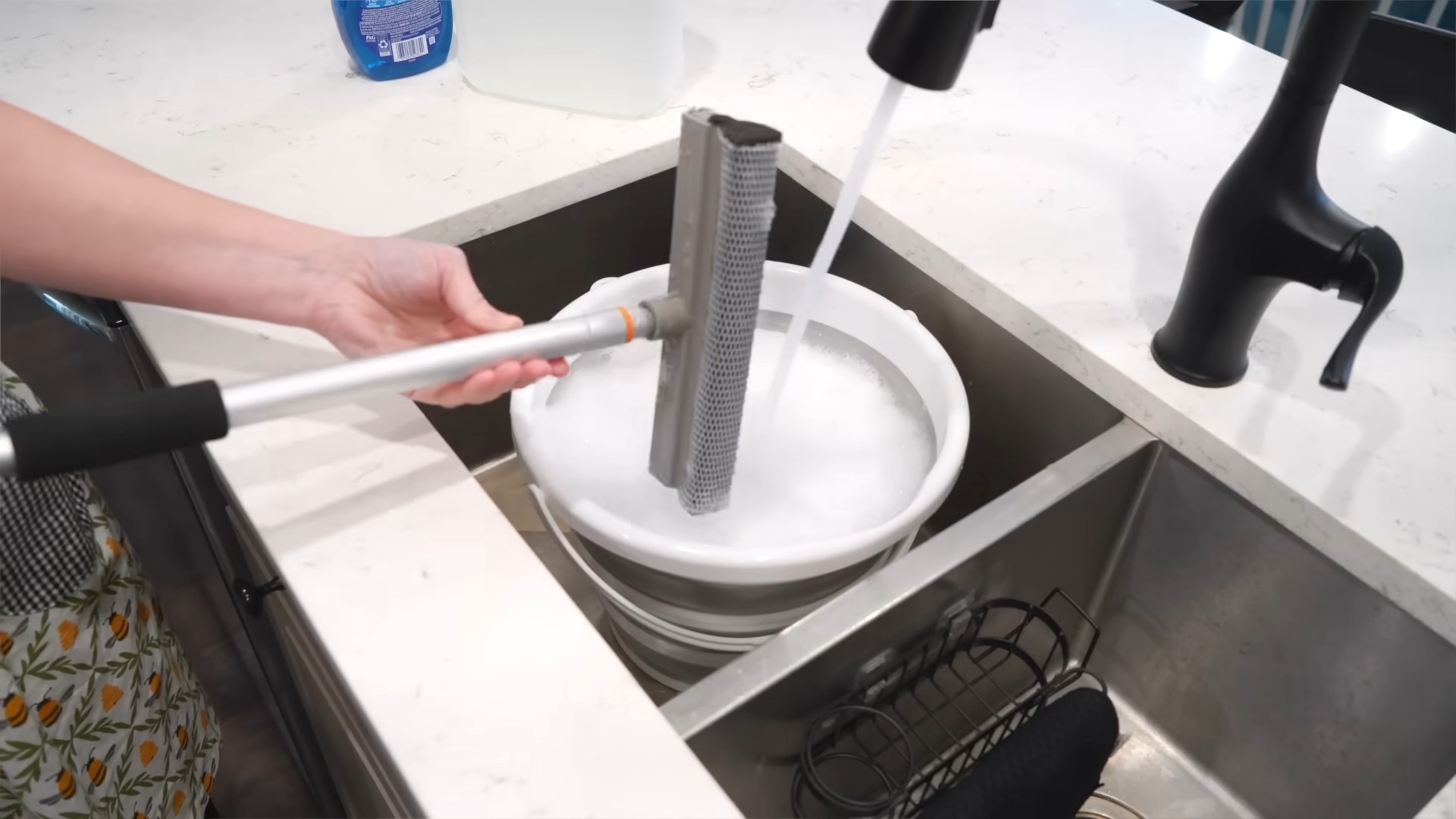
Conclusion
So, there you have it! Ditching the store-bought sprays and embracing this simple, effective, and eco-friendly homemade glass cleaner is more than just a cleaning hack; it’s a small step towards a healthier home and a happier planet. We’ve walked you through the easy process, highlighting the cost savings, the elimination of harsh chemicals, and the sheer satisfaction of creating something useful with ingredients you likely already have in your pantry.
But why is this DIY trick a must-try? Beyond the obvious benefits, it’s about control. You control the ingredients, ensuring no hidden nasties are lurking in your cleaning solution. You control the scent, opting for essential oils that uplift your mood rather than overpowering artificial fragrances. And you control the impact on the environment, reducing plastic waste and minimizing your exposure to potentially harmful chemicals.
This isn’t just about clean windows; it’s about conscious living.
Variations and Suggestions
Don’t be afraid to experiment! The basic recipe is a fantastic starting point, but feel free to tailor it to your specific needs and preferences.
* Vinegar Infusion: For extra cleaning power, infuse your vinegar with citrus peels (lemon, orange, grapefruit) for a week or two before using it in the recipe. This adds a pleasant scent and boosts the cleaning properties.
* Essential Oil Blends: Play around with different essential oil combinations. Lavender and tea tree offer antibacterial benefits, while peppermint and eucalyptus can invigorate your senses. Just be mindful of using essential oils safely, especially around children and pets.
* For Heavily Soiled Glass: If you’re dealing with stubborn grime or hard water stains, pre-treat the glass with a paste of baking soda and water before using the homemade glass cleaner.
* Streak-Free Shine: The type of cloth you use matters! Microfiber cloths are your best bet for achieving a streak-free shine. Avoid using paper towels, as they can leave lint behind.
* Adjusting the Recipe: Feel free to adjust the ratio of ingredients to suit your needs. If you find the vinegar scent too strong, reduce the amount slightly. If you need more cleaning power, increase the vinegar.
We truly believe that once you try this homemade glass cleaner, you’ll never go back to store-bought alternatives. It’s effective, affordable, and environmentally friendly – a winning combination!
So, grab your ingredients, mix up a batch, and experience the difference for yourself. We’re confident you’ll be amazed by the results.
And most importantly, we want to hear from you! Share your experiences, variations, and tips in the comments below. Let us know what essential oil blends you love, what challenges you encountered, and what sparkling clean surfaces you’ve achieved. Your feedback will not only help other readers but also inspire us to continue sharing valuable DIY solutions. Let’s build a community of conscious cleaners, one sparkling window at a time!
Frequently Asked Questions (FAQ)
Q: Why should I make my own glass cleaner when store-bought options are so readily available?
A: While store-bought glass cleaners are convenient, they often contain harsh chemicals, artificial fragrances, and contribute to plastic waste. Making your own homemade glass cleaner allows you to control the ingredients, avoid potentially harmful substances, save money, and reduce your environmental impact. It’s a healthier and more sustainable choice for your home and the planet. Plus, it’s surprisingly easy and effective!
Q: What kind of vinegar should I use?
A: White distilled vinegar is the best option for homemade glass cleaner. It’s inexpensive, readily available, and has a high acidity level, making it effective at cutting through grease and grime. Avoid using other types of vinegar, such as apple cider vinegar or balsamic vinegar, as they may leave a residue or stain.
Q: Can I use tap water instead of distilled water?
A: While you can use tap water, distilled water is highly recommended for the best results. Tap water often contains minerals and impurities that can leave streaks on your glass surfaces. Distilled water is purified and free of these contaminants, ensuring a streak-free shine. If you only have tap water available, let it sit for 24 hours to allow some of the minerals to settle before using it.
Q: What essential oils are best for homemade glass cleaner?
A: The best essential oils for homemade glass cleaner are those with antibacterial, antiviral, and degreasing properties, as well as pleasant scents. Some popular choices include:
* Lemon: A natural degreaser and disinfectant with a refreshing scent.
* Tea Tree: An antibacterial and antiviral oil that helps to kill germs.
* Lavender: A calming and relaxing scent with antiseptic properties.
* Peppermint: A refreshing and invigorating scent with antibacterial properties.
* Eucalyptus: A decongestant and antibacterial oil with a strong, clean scent.
Remember to use essential oils safely and dilute them properly. A few drops are usually sufficient for a batch of homemade glass cleaner.
Q: Will the vinegar smell linger after cleaning?
A: The vinegar smell may be noticeable initially, but it dissipates quickly as the cleaner dries. Adding essential oils can help to mask the vinegar scent and leave a more pleasant fragrance. Ensure proper ventilation by opening windows or using a fan while cleaning.
Q: Can I use this homemade glass cleaner on all types of glass surfaces?
A: Yes, this homemade glass cleaner is generally safe to use on most types of glass surfaces, including windows, mirrors, glass tables, and shower doors. However, it’s always a good idea to test it on a small, inconspicuous area first to ensure it doesn’t damage the surface. Avoid using it on tinted windows or delicate surfaces without consulting the manufacturer’s instructions.
Q: How should I store the homemade glass cleaner?
A: Store your homemade glass cleaner in a clean, airtight spray bottle. Label the bottle clearly to avoid confusion. Keep it out of reach of children and pets. The cleaner should last for several months if stored properly.
Q: My glass is still streaky after using the homemade cleaner. What am I doing wrong?
A: Streaks can occur for several reasons. Here are some troubleshooting tips:
* Use a clean microfiber cloth: Microfiber cloths are designed to trap dirt and grime without leaving lint behind.
* Avoid using too much cleaner: A light mist is all you need. Over-saturating the surface can lead to streaks.
* Wipe in one direction: Overlapping strokes can help to prevent streaks.
* Dry the surface thoroughly: Use a clean, dry microfiber cloth to buff the glass until it’s completely dry.
* Check your water: If you’re using tap water, try switching to distilled water.
* Clean your windows on a cloudy day: Direct sunlight can cause the cleaner to dry too quickly, leading to streaks.
Q: Can I use this cleaner on my car windows?
A: Yes, you can use this homemade glass cleaner on your car windows. However, be careful not to get it on the car’s paint, as the vinegar could potentially damage the finish over time. Rinse the windows thoroughly with water after cleaning.
Q: Is this cleaner safe for septic systems?
A: Yes, this homemade glass cleaner is generally safe for septic systems. The ingredients are biodegradable and won’t harm the beneficial bacteria in your septic tank.
Q: Can I add dish soap to the recipe for extra cleaning power?
A: While some people add a small amount of dish soap to their homemade glass cleaner, it’s generally not recommended. Dish soap can leave a residue on the glass, leading to streaks. If you need extra cleaning power, try pre-treating the glass with a paste of baking soda and water.

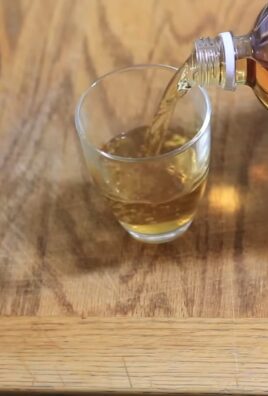
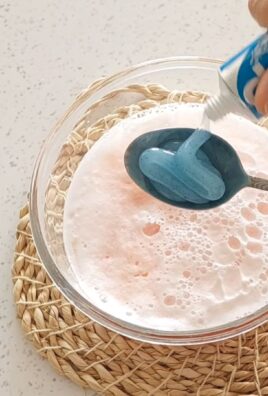
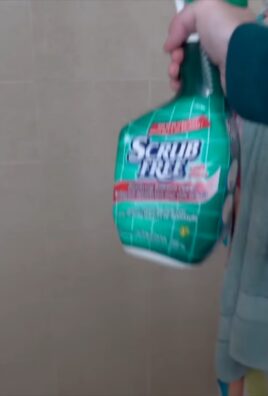
Leave a Comment